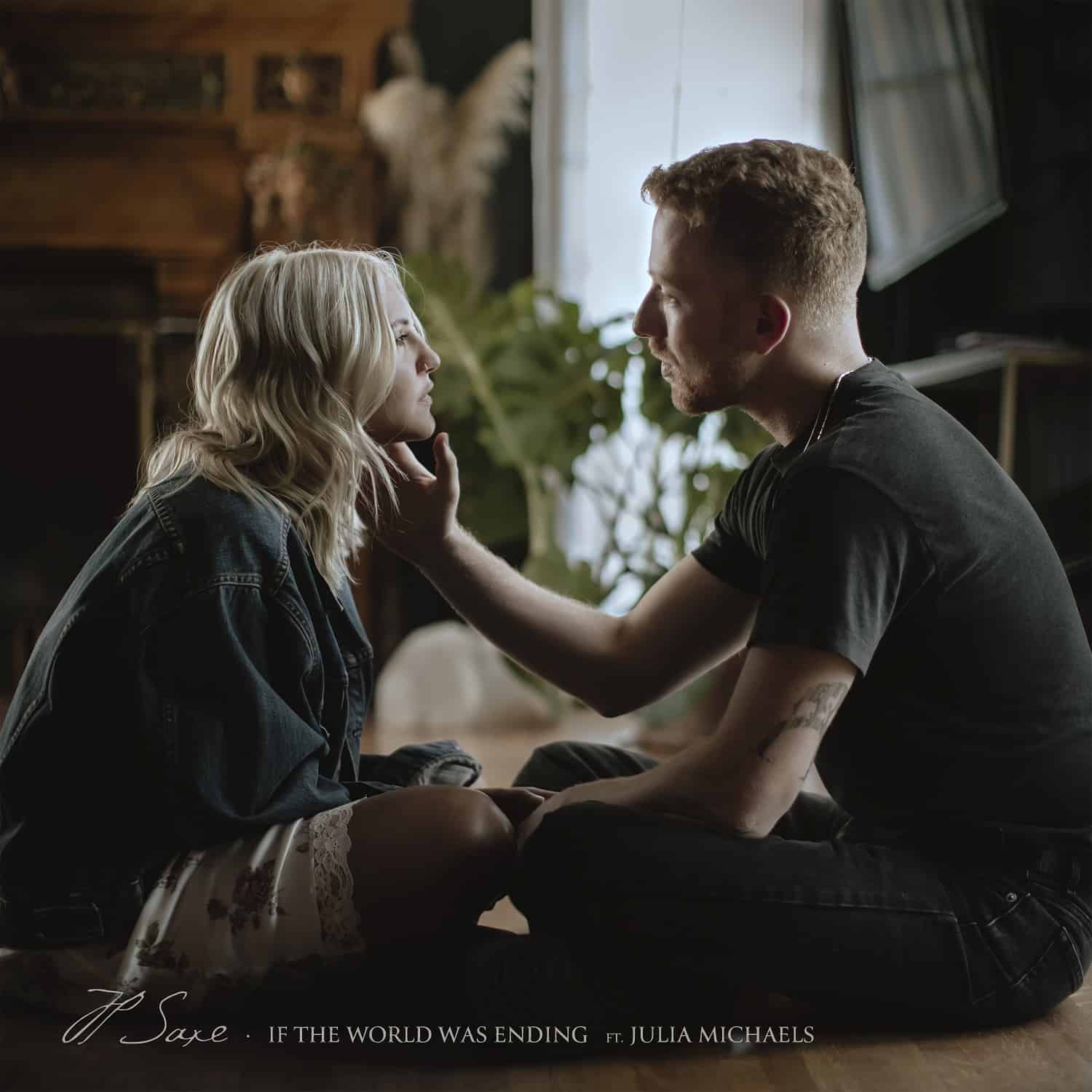Wunderhorse’s frontman Jacob Slater sits down with Atwood Magazine to discuss the English indie rock band’s intense second album, ‘Midas.’
for fans of Fontaines D.C., Bob Dylan, Nirvana, The Replacements
Stream: “Silver” – Wunderhorse
Recently, the singles have been more intense. We were in a quite intense period in our lives, and as a result, it was a real white-hot energy that we were bringing into the studio.
Jacob Slater doesn’t really know how his songs get written.
The critically lauded singer and songwriter of the up-and-coming rock four-piece Wunderhorse says he doesn’t feel like he wrote his best songs. It’s not him who’s in control, he says. It’s the song.
Following on the critical success of 2022’s Cub, Wunderhorse return now with an even darker, more diverse and sonically interesting album. Yet refrains like “I’m ready to die” and tales of everymen doomed never to reach their potential somehow bring a catharsis that, at least for this critic, comes out the other side into the realm of uplifting.
On stage, Slater continues to improve his boundless vocals and the sinister, slightly unsettling stare he also bears on his former punk band Dead Pretties’ single “Confidence.” In person, however, he’s soft-spoken and humble, giving much credit to his bandmates–guitarist Harry Fowler, drummer Jamie Staples and bassist Peter Woodin – who he says were the critical spark needed to set off the explosion of Midas, out Aug. 30 via Communion / Mick Music.
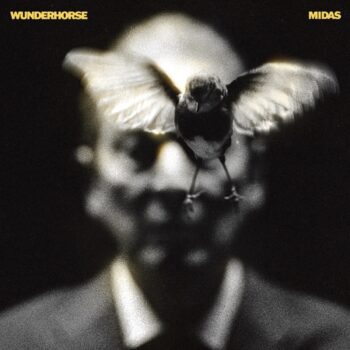
Recorded with Grammy Award-winning producer Craig Silvey, the album tours sounds ranging from garage and grunge to folk and psychedelia, with elements of punk and ambient. Each song retains the rough-and-ready feel that Slater says he’s always been after and now has finally achieved to his satisfaction.
The band wanted this album to sound “imperfect, very live, very raw; no frills… like your face is pressed up against the amplifiers, like you’ve been locked inside the bass drum.” And they’ve more than done it.
The songs themselves are so strong that Wunderhorse’s unedited, no-hold-barred style only makes them stronger.
— —
:: stream/purchase Midas here ::
:: connect with Wunderhorse here ::
Stream: “Arizona” – Wunderhorse
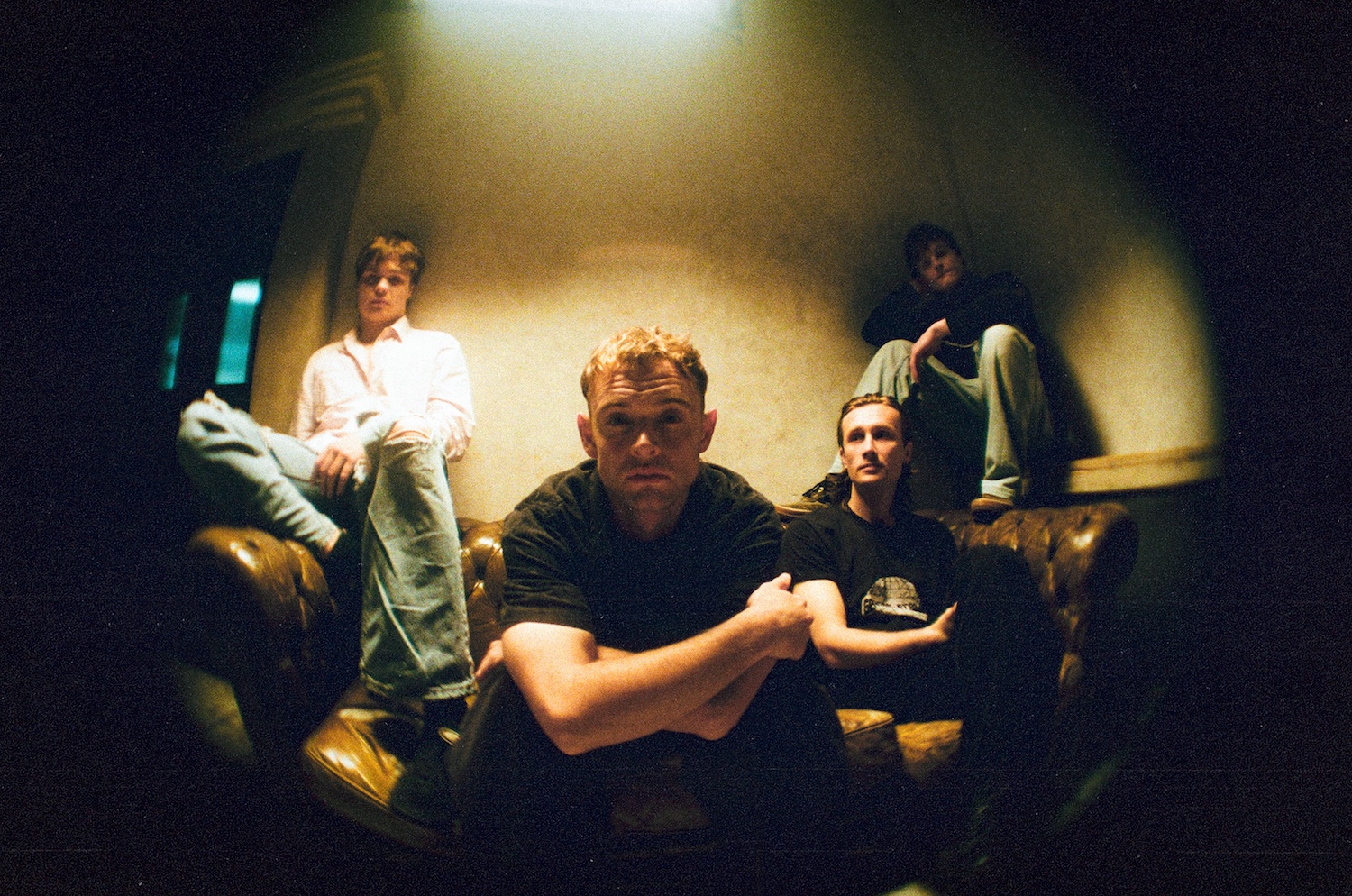
A CONVERSATION WITH WUNDERHORSE
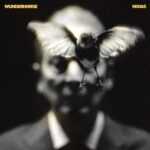
Atwood Magazine: Thanks so much for chatting with us today! Let’s take a step back first: On your debut album, Cub, you were doing things mostly on your own. Can you talk about the differences in approach for Midas?
Jacob Slater: Yeah, for Cub it was songs that I gathered over quite a large bracket of time. The oldest song on there, I think I wrote when I was about 17, right up to stuff that I wrote in the studio. So that was a seven-year bracket. And due to the fact that I’d lived with those songs for a long time, I had a very clear idea about the instrumentation. So I was kind of the musical director on that record.
When Harry joined in between the two albums, it was like the missing piece for the sound we didn’t realize we needed. The whole thing kind of came alive. We did a lot of touring with Harry in the band, and a sort of natural chemistry formed. So for these songs on Midas, I’m still writing the bones of everything, writing on an acoustic, doing the chords and the lyrics, but then over half the album was written in the studio. The other guys were there while I was writing, which gave them the opportunity to write their parts as I was writing the song, as it was in its embryonic stages.
So what you’re hearing on the record is still me writing the bones of everything, but everyone else is playing stuff that I probably wouldn’t have thought of myself. It became greater than what I could have done on my own.
Some bands like to have everything written before they come in to record, and others like to let things evolve in the studio. Which category would you say you’re in?
Jacob Slater: It’s interesting. I always thought I was in the former camp until this most recent album. We had all these songs, and we turned up at the studio, and most of them weren’t working. I was like, “Sh-t, the record label spent a lot of money getting us over to America, and we’ve got nothing.” But then, weirdly, within a couple of days, stuff just started happening. I don’t know what it was.
For the title track, “Midas,” I’d had those chords kicking around for a while, and I wrote some lyrics down real quick. The take of that song is actually a rehearsal take. I was teaching the guys the song, and Craig [Silvey], the producer, sneakily recorded us. We came back in, and he was like, “That’s the take. That’s it.” And from that moment, I was like, “Oh, it can be that easy.”
There was some sort of magic, like alchemy, in the air. I don’t know what it was, but we came up with pretty much the whole record in the studio. I can’t really explain what was happening, but something was working. Something was on our side.
What you’re hearing on the record is still me writing the bones of everything, but everyone else is playing stuff that I probably wouldn’t have thought of myself. It became greater than what I could have done on my own.
What did you learn from working with Craig Silvey?
Jacob Slater: I’d always been a firm believer in doing things kind of rough and keeping the raw edges, but he really hammered that home. It’s always been something I wanted to do, but every recording process before had ended up with everything getting smoothed out. But he really kept us on that path. Even some really ugly mistakes were left in. He would say, “Live with them for a few days, and then we’ll come back and listen again.” And he was always right. They always added something.
And the other thing, a massive thing, was every morning we’d listen to music in the studio together. Depending on what track we were going to do that day, we’d have reference tracks. And the way he spoke about music, the way he heard it—he pointed out things in some of our favorite songs, some of these old Neil Young songs, really famous ones like “Heart of Gold” and stuff. He’d point out that the drummer was leaving out the hats on the verses and then bringing them in on verse two or something. And when he pointed it out, you suddenly realized how much that raises the song, these tiny little variables that change. I never noticed that before, so it totally changed the way we all heard music. That continues to this day. We definitely hear music differently now.
I asked ChatGPT to tell me the top three adjectives most used to describe your music on the web. Do you have any guesses as to what those might be?
Jacob Slater: (laughs) No idea.
First is “intense,” and then “energetic” and “reflective.”
Jacob Slater: Yeah, strangely, that’s kind of… I’d say that’s pretty accurate. I think recently the singles have been more intense. We were in a quite intense period in our lives, and as a result, it was a real white-hot energy that we were bringing into the studio. Certainly, in our performances, in our playing, there’s lots of stuff going on surrounding the record, and that definitely informs the music. So yeah, the reflective thing makes sense too.

I’m a big fan of the song “Superman,” and I found that one very reflective. What inspired that one?
Jacob Slater: A few people have written about that one, and people kind of get it, but it seems like people miss the point slightly. It’s one of the saddest songs I’ve written because it’s about a sort of everyman who feels as though he has a great deal to give to the world, but that has never actually been realized. Nothing’s actually come of it. It’s like this gift that he has to give that actually lives inside him and has never really made it out, and it never is going to come out. So there is this secret that he lives with, and in his head, there’s this sort of other life that he could have lived that is kind of kept within him. In reality, he’s just working late in an office somewhere, in a job that he hates. But in his head, he’s drifting up through the air vents and going up into the night, and flying through the night sky.
When you're starting out on the sound for a song, are you usually starting with a melody, a groove, a chord progression?
Jacob Slater: All the good ones, the ones that stay, usually all come at once, which is a really odd thing. And kind of frustrating because I don’t actually know how that works, and I wish I did.
That's art for you.
Jacob Slater: Yeah, totally. It’s very strange because all the best ones, you feel like you didn’t even write them. They just kind of land in your lap, and you just think, well, I hope that keeps happening. It’s like they’re in control, not you.
Where do you find that you write the best?
Jacob Slater: Occasionally I get one that comes like a bolt from the blue. But a lot of the time, I find I’m most creative when I’m isolated. When I wake up and live and breathe it. I guess that’s why being at Pachyderm was such a prolific time because we were in the middle of nowhere living in the studio. I find it quite hard to create if I’m overstimulated, like in an urban environment where there’s loads going on. I’m seeing this person doing that, and I’ve got to run out and grab this or that. I need to sort of focus and be quiet.
What landed you at Minnesota’s famed Pachyderm studio?
Jacob Slater: We had a talk with Craig about whether he wanted to produce the record, and him trying to figure out what we were about. And obviously we knew [Nirvana’s] In Utero had been done there, and Rid of Me by PJ Harvey, and that was a nice dream. Then we got news that it was actually happening. We couldn’t believe it. Harry and I grew up listening to In Utero together, sitting in his room at 3 am and playing it over and over again. So it was very surreal to go to the place where that was brought to light.
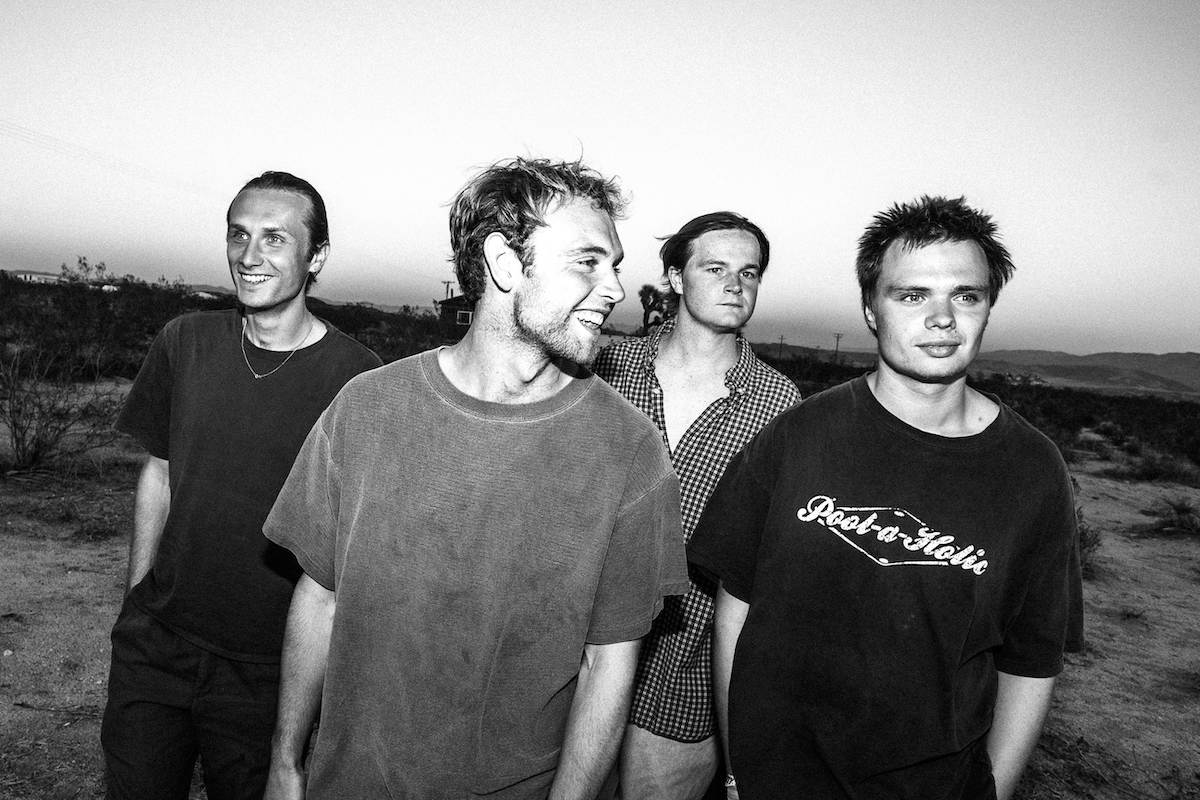
You've got a great vocal range, and you've also got a really good scream. How do you take care of your voice night in and night out when you're on the road?
Jacob Slater: Thank you. Well, I never used to take care of it. When I was in my teenage years and playing in punk bands, you know, I took really bad care of it.
When you were immortal, right?
Jacob Slater: Yeah, totally, just like, “Yeah, I haven’t got time for that.” I was pretty reckless with it. But you get into your mid-20s, and you start touring a fair bit, and you start to notice that the longer you play, the longer the tours are, you’ve got to start having a bit of maintenance. In the last couple of years, I’ve started taking care of it a bit more. I’m lucky because it seems to have held up. It’s definitely changed and developed as all voices do as you get older and as you put them through more stuff. But I’ve kept things I like about it, which I’m lucky for, and I’ll try to hold on to.
So I just warm up before I sing now. And sometimes I warm down.
How do you “warm down”?
Jacob Slater: It’s a selection of exercises, similar to warming up, that you do to bring your voice back down to your normal state. Because your voice has been doing this unnatural thing for an hour and a half, and it’s still in that mode. You come off stage, and then it’s whatever — smoking, drinking, talking loudly. The exercises are meant to make sure you don’t continue to wear it out.
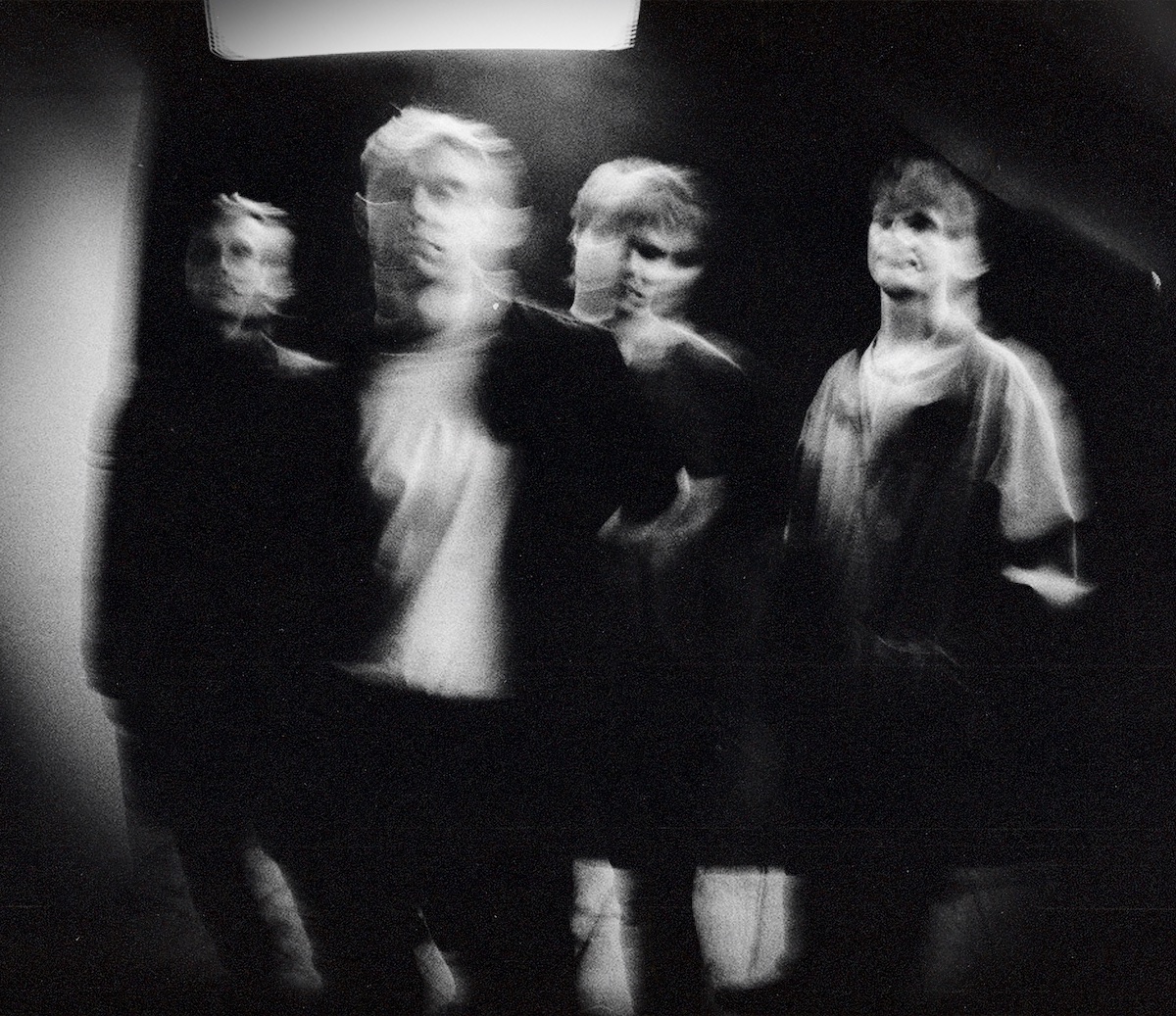
What songs do you most like to play live?
Jacob Slater: I love playing “Rain,” I love playing “Midas” as well. ”Cathedrals” is a lot of fun too. It’s so simple, and you can just hammer it out, play it loud, and you can hear it reverberate behind the stage. I love playing simple songs live because you can lose yourself more in them since you’re not fixated on the technicalities of the playing.
Are you going to add “Lunch” by Billie Eilish to your rotation, now that you covered it on BBC Radio One?
Jacob Slater: Maybe if she invites us out to do it with her! I doubt she will ever hear that cover, but you never know. It was a fun one to do, and we kind of picked it last minute because I thought, given the nature of the song, you can probably f-ck it up and subvert it a fair bit. Being a straight guy singing that song, it suddenly takes on a slightly more sinister meaning. I love it when people do that–like when Tom Waits and Nick Cave do love songs which have this kind of seediness to them, and the more you listen to it, you think, “That’s terrifying.”

What are you listening to these days?
Jacob Slater: I listen to some modern stuff, but I’m always going back to certain artists. Tom Waits has always been a constant. I’m revisiting lots of his ’90s stuff now, the stuff he did for Black Rider and Bone Machine. He’s endless, man. Like Dylan, there’s just always new stuff to discover. And talking about recording in Minnesota, you’ve got Dylan, and Prince, and The Replacements, which are some absolute favorites. Then there’s a band in South London called Wu-Lu, who are really great, as well as Sorry.
What’s coming up next for Wunderhorse?
Jacob Slater: We’ve got some festivals coming. Before we go out in support of Fontaines again I’m excited for our headline tour of the UK and Ireland in October. We’re playing [London’s] Brixton Academy, and I’ve wanted to play there since I was a kid. So we’re really looking forward to that.
— —
:: stream/purchase Midas here ::
:: connect with Wunderhorse here ::
— — — —

Connect to Wunderhorse on
Facebook, Twitter, TikTok, Instagram
Discover new music on Atwood Magazine
© Polocho
:: Stream Wunderhorse ::


 © Polocho
© Polocho



